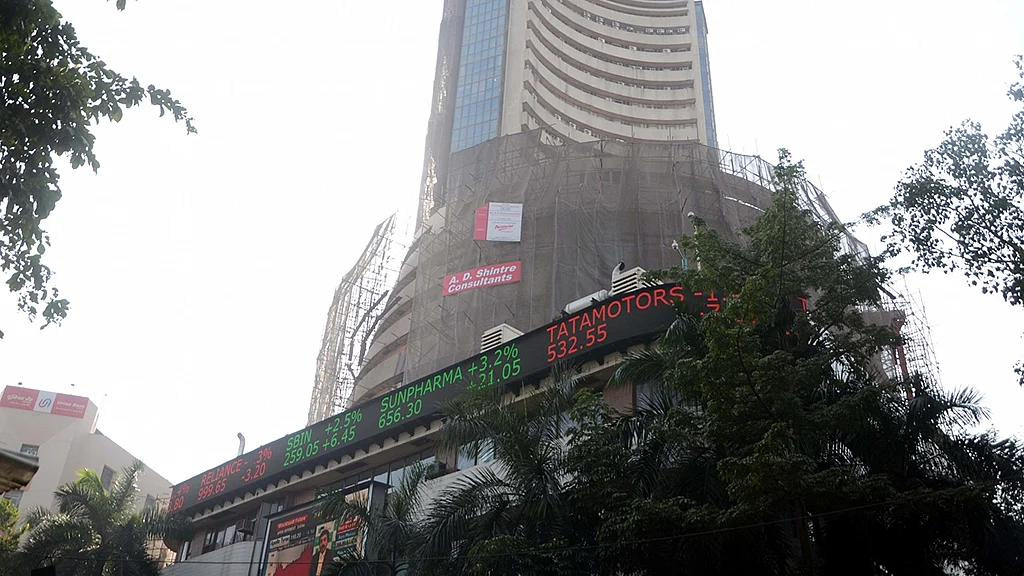Budget 2018: Equity indices in steepest fall since November 2016 after govt reintroduces LTCG tax
Reintroduction of long-term capital gains tax, higher-than-expected fiscal deficit target and weak global cues led to huge sell-off in the markets on Friday; Sensex and Nifty both dropped by over 2%

Reintroduction of the long-term capital gains (LTCG) tax, along with weak global cues, led to a huge sell-off in the markets on Friday with the key Indian equity indices falling the steepest since November 2016. Market observers said disappointing announcements in the Budget like on the LTCG tax and a higher-than-expected fiscal deficit target for 2018-19 dampened investors' risk-taking appetite.
On a closing basis, the barometer 30-scrip Sensitive Index (Sensex) plunged by 839.91 points or 2.34% to 35,066.75 points. The BSE market breadth was bearish as 2,548 stocks declined as against 295 advances. On the National Stock Exchange, the wider Nifty50 dropped 256.30 points or 2.33% to close at 10,760.60 points.
"Markets corrected sharply on Friday as selling intensified during the day. Investors seemed to be disappointed with the fiscal deficit numbers and introduction of LTCG tax," Deepak Jasani, Head, Retail Research, HDFC Securities, told IANS. "Negative global cues also spoiled sentiments. Major Asian markets have closed on a mixed note. European indices like FTSE 100, DAX and CAC 40 were trading in the red," added Jasani.
In the broader markets, the S&P BSE mid-cap index dipped by 4.03% and the small-cap index by 4.65%. All the 19 sub-indices of the BSE plunged into the negative territory. The S&P BSE auto index plummeted by 906.19 points, followed by banking index by 878.16 points, consumer durables index by 744.58 points and the capital goods index by 743.14 points.
"Markets tumbled as the LTCG tax on equities investments dampened sentiment, while bonds slid for a second consecutive session on worries that the central bank would become more hawkish on inflation," Dhruv Desai, Director and Chief Operating Officer of Tradebulls, told IANS. "Investors worried that higher spending and the government's move to raise minimum support prices for crops could lead to higher retail prices at a time when consumer price inflation has already hit a 17-month high of 5.21%, well above the Reserve Bank of India's target of 4%," he added.
Vinod Nair, Head of Research, Geojit Financial Services, said: "Market skid as deviation in fiscal path and higher rural spending hit investors' sentiment. Additionally, rising inflation and yield may push the RBI to be more hawkish on interest rate in the coming monetary policy."
On the currency front, the Indian rupee weakened by four paise to close at 64.06 against the US dollar from its previous close at 64.02.
Follow us on: Facebook, Twitter, Google News, Instagram
Join our official telegram channel (@nationalherald) and stay updated with the latest headlines
